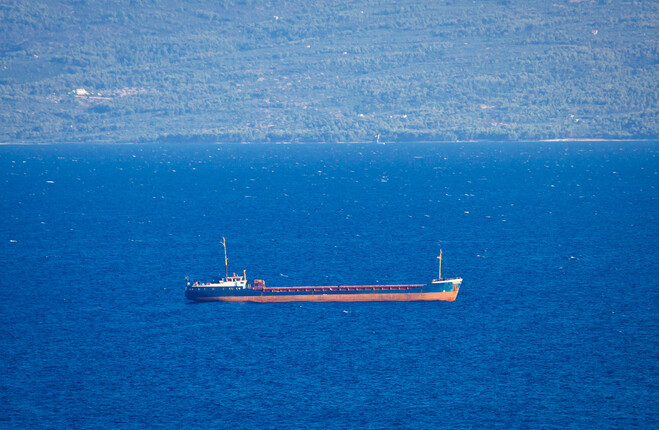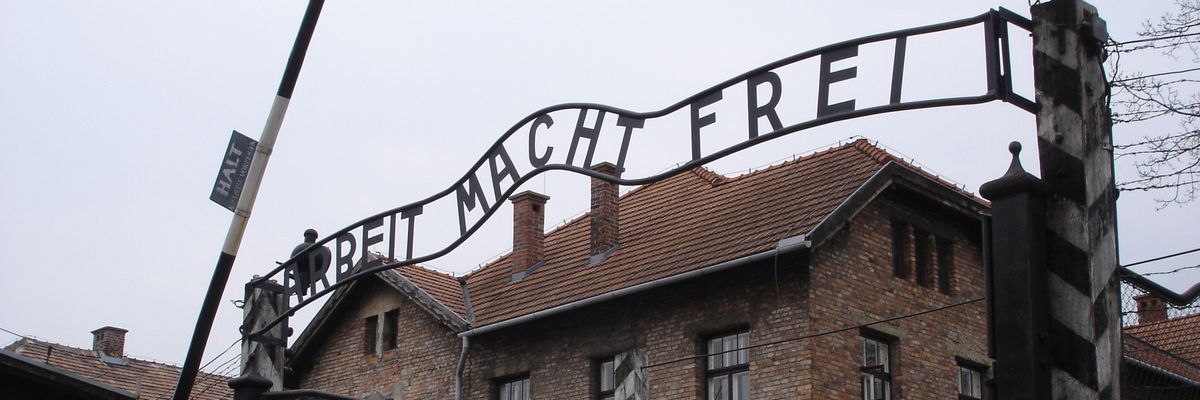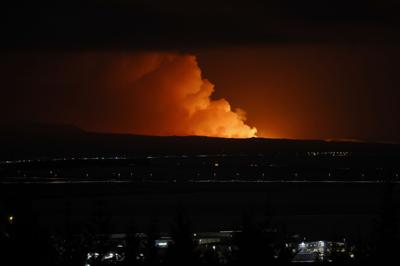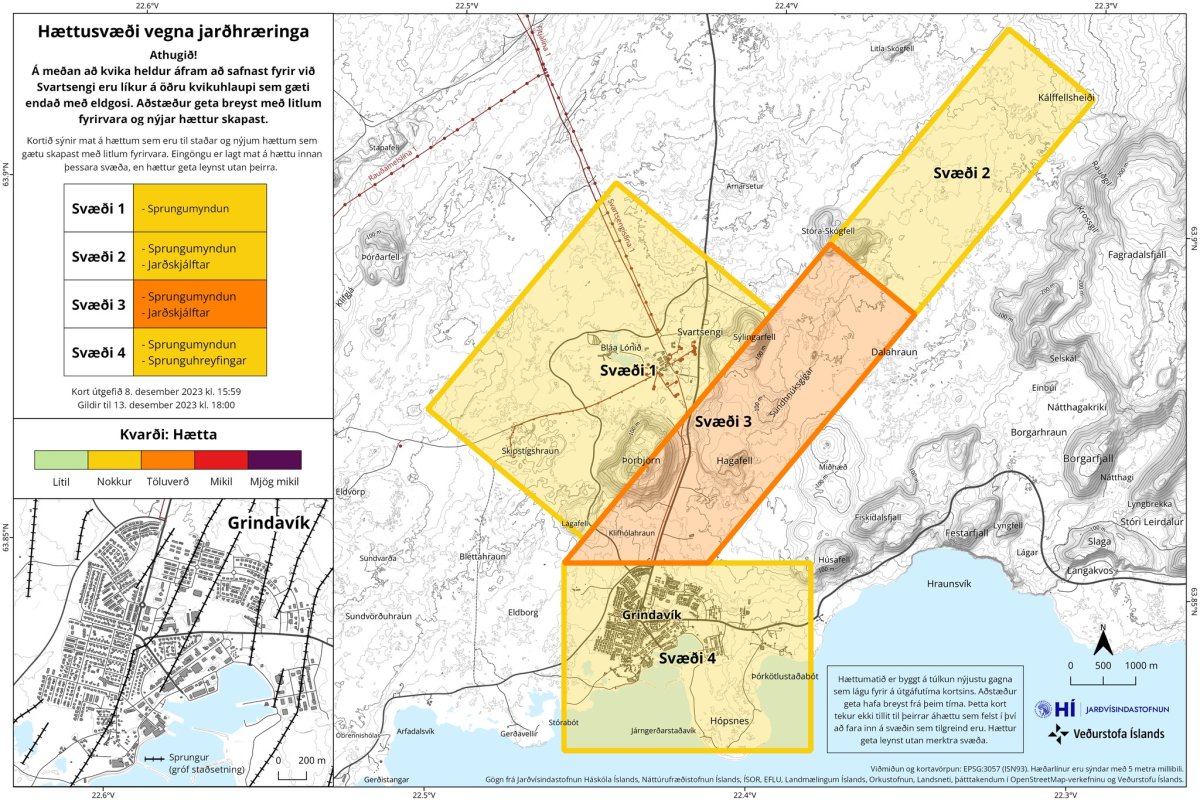Pentagon announces mission to counter attacks on commercial vessels in Red Sea, with help of allies including Canada

U.S. Secretary of Defense Lloyd Austin makes a joint statement with Israel Minister of Defense Yoav Gallant, after their meeting about Israel's military operation in Gaza, in Tel Aviv on Dec. 18.MAYA ALLERUZZO/THE ASSOCIATED PRESS
The U.S. and a host of other nations, including Canada, are creating a new force to protect ships transiting the Red Sea that have come under attack by drones and ballistic missiles fired from Houthi-controlled areas of Yemen, Defense Secretary Lloyd Austin announced early Tuesday in Bahrain.
The seriousness of the attacks, several of which have damaged the vessels, has led multiple shipping companies to order their ships to hold in place and not enter the Bab el-Mandeb Strait until the security situation can be addressed.
“This is an international challenge that demands collective action,” Defense Secretary Lloyd Austin said in statement released just after midnight in Bahrain. “Therefore today I am announcing the establishment of Operation Prosperity Guardian, an important new multinational security initiative.”
The United Kingdom, Bahrain, Canada, France, Italy, Netherlands, Norway, Seychelles and Spain will join the U.S. in the new mission, Austin announced. Some of the countries will conduct joint patrols while others provide intelligence support in the southern Red Sea and the Gulf of Aden.
Several other countries have also agreed to be involved in the operation but prefer not to be publicly named, a defence official said on the condition of anonymity to discuss additional details of the new mission that have not been publicly announced.
The mission will be co-ordinated by the already existing Combined Task Force 153, which was set up in April 2022 to improve maritime security in the Red Sea, Bab el-Mandeb and the Gulf of Aden. There have been 39 member nations in CTF 153, but officials were working to determine which of them would participate in this latest effort.
Separately, the United States has also called on the United Nations Security Council to take action against the attacks.
In a letter to council members obtained Monday by the Associated Press, U.S. Ambassador Linda Thomas-Greenfield said Houthi attacks targeting commercial vessels legally transiting the international waterways continue to threaten “navigational rights and freedoms, international maritime security, and international commerce.”
The 15 council members discussed the Houthi threat behind closed doors Monday but took no immediate action.
Three U.S. warships – the USS Carney and the USS Mason, Navy destroyers – have been moving through the Bab el-Mandeb Strait daily to help deter and respond to attacks from the Houthis.
The move to set up the expanded operation came after three commercial vessels were struck by missiles fired by Iranian-back Houthis in Yemen on Dec. 3. Those attacks were part of an escalating campaign of violence that also included armed and other drones launched in the direction of U.S. warships.
To date the U.S. has not struck back at the Iranian-back Houthis operating in Yemen or targeted any of the militants’ weapons or other sites. On Monday Austin did not answer a question as to why the Pentagon had not conducted a counterstrike.
UK to join US-led operation to safeguard Red Sea amid rebel attacks - as BP halts oil shipments over security concerns
18 December 2023, 22:14 | Updated: 19 December 2023
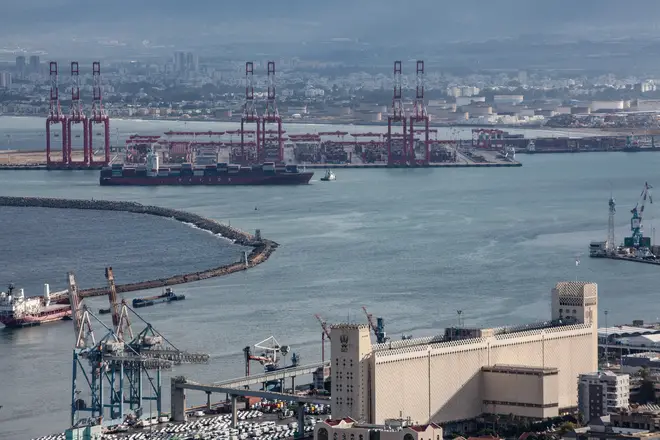
US Defence Secretary Lloyd Austin has said that a rise in rebel attacks in the Red Sea were an "international challenge that demands collective action".
A series of raids have been carried out in the Red Sea over the last few weeks, including drone and ballistic missile attacks, coming from Houthi-controlled areas of Yemen.
The Houthi group, based in Yemen, is backed by Iran and openly supports Hamas.
The United Kingdom will be joined by Canada, France, Italy, Bahrain, the Netherlands, Seychelles, Spain, and Norway in the US-led coalition.
Other participating nations have chosen to remain anonymous.
"Today I am announcing the establishment of Operation Prosperity Guardian, an important new multi-national security initiative," Mr Austin said today.
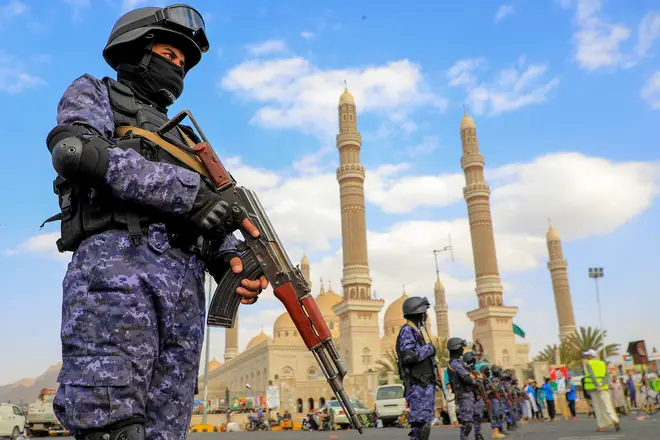
BP said it had witnessed a "deteriorating security situation" for its shipments.
Iranian-backed Houthi militants are understood to be targeting ships using the Bab el-Mandeb Strait, with the pro-Hamas group seeking to disrupt ships set for Israel.
"In our trading & shipping business, as in all BP businesses, the safety and security of our people and those working on our behalf is BP's priority," a spokesperson for BP said.
"In light of the deteriorating security situation for shipping in the Red Sea, BP has decided to temporarily pause all transits through the Red Sea.
"We will keep this precautionary pause under ongoing review, subject to circumstances as they evolve in the region."
Several shipping firms have already paused container shipments through the area due to the surge in attacks.
Danish firm Maersk said it would suspend its activity in the region following a near miss involving one of its ships on Thursday.
Guy Platten, Secretary-general of the International Chamber of Shipping, told LBC News: “Shipping companies are evaluating the situation on an hour-by hour-basis.
"We heard on Friday and Saturday that Maersk, MSC, Hapag Lloyd amongst others have all paused traffic going through the Red Sea.
"We know others are considering their options as well and quite frankly we're deploring the actions of what's going on.
"It's flagrant breach of international law and the concern of shipping companies is going to be about their seafarers and that's why they're rapidly evaluating the situation."
It comes after a British-owned ship was previously hit by a missile in the Red Sea.
The Bahamas-flagged Unity Explorer, which is owned by a British company, was one of three commercial vessels targeted in a drone and missile assault at the start of the month.
US military Central Command said the ship sustained minor damage in the attack.
Latest Ship Under Attack in the Red Sea Hijacked by Somali Pirates
The latest ship to come under attack in the Red Sea near the Yemeni coast has turned out to have been hijacked by Somali pirates.
The initial reports suggested the MV Ruenm a bulk carrier sailing under a Maltese flag, had become the latest target of the Houthis who vowed to strike any vessel bound for Israeli ports.
Now, reports over the weekend are saying that the ship was heading to Somalia. It had sent a distress signal on Thursday saying six people had boarded it and the Indian Navy sent an anti-privacy patrol ship and a patrol aircraft to track the ship’s movement, the AP reported. So far, nobody has claimed responsibility for the hijacking.
Earlier, the Telegraph reported that the hijacked ship was heading to the Yemeni coast, suggesting there could be cooperation between the Houthis and the Somali pirates.
The string of Houthi missile and drone attacks on vessels in the waters off the Yemeni coast have triggered an industry response that has basically consisted of a warning for vessels to avoid the Bab el Mandeb strait.
Maersk Tankers, a Danish firm separate from the global shipping giant Moller-Maersk, said it had advised its fuel tankers to bypass the strait to avoid an attack. Then Moller-Maersk said it would stop moving container ships through the Red Sea until further notice, following an attack on one of its ships.
MSC, the largest container shipper, also said it would no longer use the Red Sea and the Suez Canal after it, too, became a target. The company said the change will be in effect “until the Red Sea passage is safe.”
Germany’s Hapag-Lloyd, meanwhile, said last Friday it had paused all sailings through the Red Sea until today. “Then we will decide for the period thereafter,” a spokesperson for the company said.
Not using the Suez Canal means container ships and other vessels would now have to go around Cape Good Hope, which adds days to the journey and, as a result, increases freight costs.
By Charles Kennedy for Oilprice.com
No injuries have been reported on board the Norwegian ship.
A NORWEGIAN SHIP was hit by an “unidentified” object this afternoon in the Red Sea, as a series of shipping companies have suspended transit in the region following Yemeni rebel attacks
British energy giant BP was the latest of a litany of companies who have suspended transits through the Red Sea, after Yemen’s Huthi rebels targeted Israel with missiles.
Shortly after the company announced it was suspending operations, Norway’s Inventor Chemical Tankers confirmed that one of the ships in its fleet had been struck by an “unidentified object”.
“Fortunately, there were no injuries to any members of the Indian crew, and the vessel has reported limited damage to the vessel,” the owner of the ship said in a statement.
Earlier a statement from BP said that in light of a “deteriorating security situation for shipping in the Red Sea” the company has decided to temporarily pause all transits in the region.
“We will keep this precautionary pause under ongoing review, subject to circumstances as they evolve in the region,” it added.
BP said the safety and security of its staff was a “priority” of theirs.
The rebels have previously fired at passing ships in the Red Sea in a show of solidarity with Hamas.
The series of attacks has led a number of major shipping companies to avoid the maritime chokepoint and redirect their vessels around Africa, a longer and far more costly route.
During a visit to Israel on Sunday, France’s foreign minister insisted that the attacks in the Red Sea “cannot go unanswered”.
Catherine Colonna added that her country was “studying several solutions”, including a “defensive role to prevent” further attacks.
Two major shipping firms, Mediterranean Shipping Company and CMA CGM, suspended at the weekend passage through the strait seen as vital for global trade.
The announcement by Italian-Swiss giant MSC and France’s CMA CGM followed a similar decision Friday by two of the world’s largest shipping companies, Maersk and Hapag-Lloyd.
The announcements were in response to a warning by the Iran-backed Huthi rebels, who control much of Yemen but are not recognised internationally.
The Huthis said they were targeting vessels near the strategic Bab al-Mandeb strait to pressure Israel over its devastating war with Palestinian Hamas militants in the Gaza Strip.
Thousands of ships every year transit through the strait, which runs between Yemen, on the southwestern tip of the Arabian Peninsula, and the African continent.
The tensions have added to fears that the Gaza conflict could spread.
